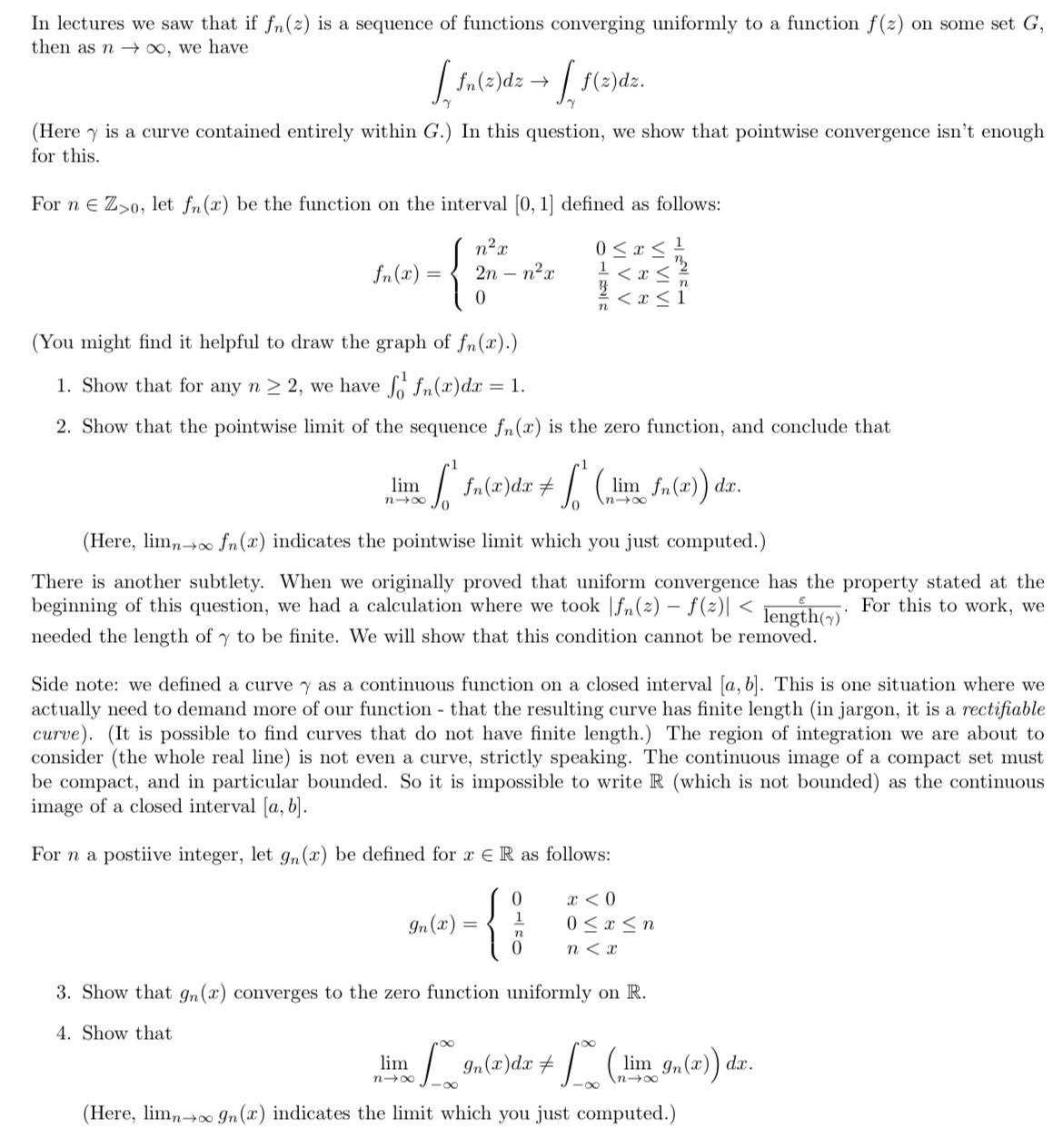In lectures we saw that if fn(z) is a sequence of functions converging uniformly to a function f(z) on some set G, then as

In lectures we saw that if fn(z) is a sequence of functions converging uniformly to a function f(z) on some set G, then as n o, we have [ fn(z)dz [ f(z)dz. (Here is a curve contained entirely within G.) In this question, we show that pointwise convergence isn't enough for this. For n E Z>o, let fn(x) be the function on the interval [0, 1] defined as follows: 0x 1 $n (2) = lim 848 { nx 2n -nx (You might find it helpful to draw the graph of fn(x).) 1. Show that for any n 2, we have fo fn(x) dx = 1. 2. Show that the pointwise limit of the sequence fn(x) is the zero function, and conclude that 0 In (x) = lim n-x [ fn(x) dx + (lim_ fn(2)) da. (Here, limno fn(x) indicates the pointwise limit which you just computed.) There is another subtlety. When we originally proved that uniform convergence has the property stated at the beginning of this question, we had a calculation where we took fn (2) - f(z)| < length() For this to work, we needed the length of y to be finite. We will show that this condition cannot be removed. Side note: we defined a curvey as a continuous function on a closed interval [a, b]. This is one situation where we actually need to demand more of our function - that the resulting curve has finite length (in jargon, it is a rectifiable curve). (It is possible to find curves that do not have finite length.) The region of integration we are about to consider (the whole real line) is not even a curve, strictly speaking. The continuous image of a compact set must be compact, and in particular bounded. So it is impossible to write R (which is not bounded) as the continuous image of a closed interval [a, b]. For n a postiive integer, let gn (x) be defined for x ER as follows: x < 0 0xn n < x < x < 1 = 0 1 n 0 3. Show that gn (x) converges to the zero function uniformly on R. 4. Show that [ In (x) dx + (Here, limno 9n (x) indicates the limit which you just computed.) *+ ** (lim 9, (2)) dr. In
Step by Step Solution
3.48 Rating (155 Votes )
There are 3 Steps involved in it
Step: 1

See step-by-step solutions with expert insights and AI powered tools for academic success
Step: 2

Step: 3

Ace Your Homework with AI
Get the answers you need in no time with our AI-driven, step-by-step assistance
Get Started


